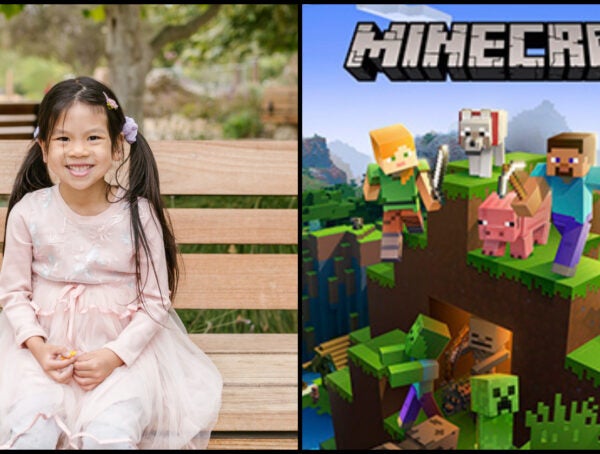Disclaimer: In Real Life is a platform for everyday people to share their experiences and voices. All articles are personal stories and do not necessarily echo In Real Life’s sentiments. The names of some participants have been changed to maintain anonymity.
When I was very young — around 5 to 6 years of age — my parents brought me to a doctor.
He diagnosed me with ADHD, or Attention Deficit Hyperactive Disorder. It is associated with kids, but it can also affect people into adulthood. According to a European study, two to five percent of adults in Malaysia have ADHD.
As for me, ADHD has greatly affected my decisions in my everyday life.
It makes me more impatient and less focused; more anxious and frustrated. I also have a harder time making friends and chatting like other people around me.
But with the help of my parents and my loved ones, I’ve overcome my condition.
With their guidance, I was able to self-publish 3 books on Amazon.
I was a troublesome kid in school
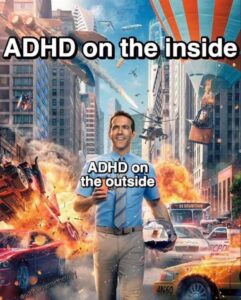
In primary school, I was notorious for being very unruly. I ran around the school, I wandered into the computer room, the library, and the science lab instead of focusing on my school subjects.
I disrupted and hurt other students just to copy what cartoons I watched when I was younger, such as making a mess at art class and picking fights with other kids.
Back then, I used to think that studying is difficult and joyless. My only purpose to live was to play. That attitude was fueled by my love of cartoons, like Ed Edd and Eddy, Kids Next Door, and Fairly Odd Parents, which I liked for their adventures and their brand of slapstick.
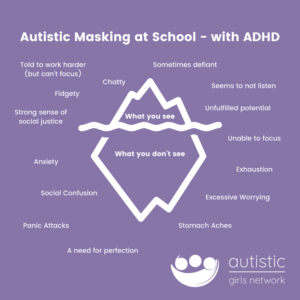
From them, I started to believe that my parents are not very smart, so I did not trust them.
To resolve this, my parents sent me to a behavioral teacher, Juliana*, who taught me to behave better.
I’ve asked her for advice regarding so many problems, like worries about my recurring thoughts, or how to deal with the feelings of losing a friend. She also motivated me to enjoy reading books to turn me away from the TV.
I got on medication to help me control my own emotions
My dad gave me some medicine that I regularly take to help myself stay focused. Chlomipramine helps me overcome my OCD habits, and Risperidone helps me stay focused on my work.
I usually avoided those pills because they made me wake up late. I feel like I should have taken them every day, considering how messed up my mind is now, since I can get frustrated and worried at any moment.
I developed a hobby for making maps

Here is a map of one of my books’ settings.
Influenced by the encyclopedias I used to read at a younger age, I started to make maps as a hobby.
I made maps of far-flung locations and charts of exotic languages to learn more about the world.
These days, I’ve moved on to other interests, but that fascination was the spark for everything that followed.
My life changed when I entered digital painting classes.
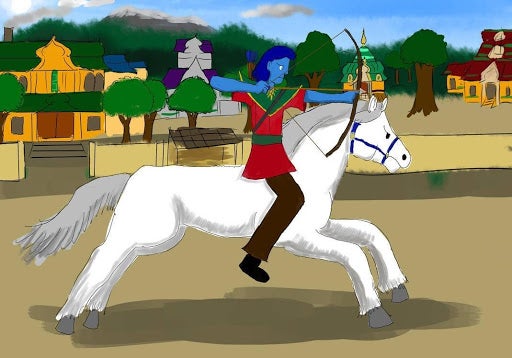
This is one of my older pictures, about the alien azdortil practicing horse archery. Azdortil is an older work of mine that is a work-in-progress.
Like many young kids of my age, I was placed into several classes to improve my skills. Among these classes were swimming lessons and digital art.
The digital art classes had a greater impact on my life. With Paint Tool SAI, I can make masterpieces of my own to celebrate what I love.
After hopping through several schools, I eventually joined a tuition centre, where I studied there for around twelve years. Though I managed to study well, I was a very bad-tempered boy, snapping into fits of rage over small irritations.
With little-to-nothing else to do, I spent a lot of time on the Internet. It filled my mind with many ideas, and I wanted to do something about their cliches. Since 2013, I took up story writing to play around with those cliches.
My mom also made me work in my former school as a teacher, where I guided special needs kids.
At first, I disliked them and got angry with them because they were very uncontrollable. But Juliana* convinced me to be patient with them, so that I can guide them in their schoolwork. I worked in her class from 2017 to 2019 as an assistant teacher.
Now in my adult life, I rarely contact her as I was very busy with my current projects.
They helped me channel my ADHD into something more worthwhile.
Generally, ADHD is often associated with a lack of focus, irritation, and constant frustration.
But according to researchers, people with ADHD have several other strengths.
These include an ever-curious mind filled with creativity, a focus towards specific but complex topics, and a resourceful way of thinking. They can learn to unlock these benefits.
In my former school, I was given weekly assignments where I made reports about books I read in the library.
One particular book inspired me to go further by making up my own world, and that book was the Silmarillion. From that time on, I started writing my own books, and I published them on Amazon.
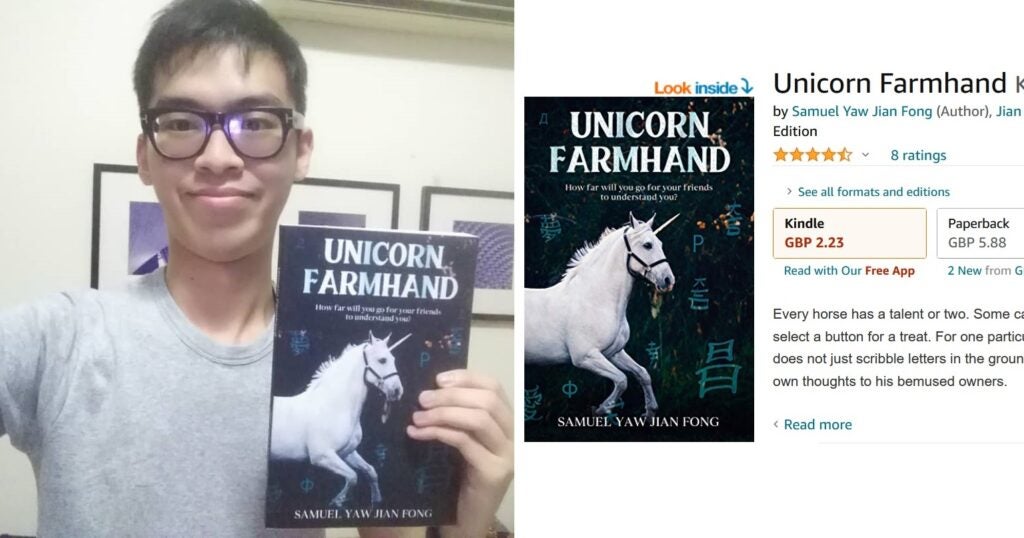
My first story was called Unicorn Farmhand — it was about a down-on-his-luck farmer who gets help from a unicorn. I wanted to play with the cliche of magical unicorns and horses being a “girly” subject.
My second story, Mockingston Faire, was about several youngsters who visit a fan convention. They get caught up within a huge brawl between two angry mobs of fans.
My third story, Hajogana (“HAH-yoh-gah-nah”) is set in a technologically-advanced amusement park where a pilot endures several deadly trials to become its next governor and end his master’s cruel policies.
People with ADHD have a superpower called “hyperfocus”
ADHD can vary in its effects on people. Some are able to adapt to the rest of society, while others find it more difficult to handle a busy work schedule.
The key trait that ADHD people like me have is hyperfocus, which is focusing too much on any specific topic rather than current responsibilities.
This can be a mixed blessing when it comes to writing several books at once. I get breakdowns that happen from poor concentration, and I struggle to do day-to-day tasks like eating or sleeping. So instead of focusing on one book, I alternate between 3.
Driven by one idea among the many thoughts flashing within my mind, I was able to make good progress as I wrote my stories.

A picture of dok saau the unicorn and chang shong, the main characters of “unicorn farmhand”.
Every day, I was able to write two or three paragraphs for two or three stories. But still, I often got distracted by my hobbies and my entertainment.
When they found out about my books, my family, Julianna, and my other friends were quite proud that I managed to put my talents to good use.
I thank them for helping me achieve my potential. They still help me to this day, even as I struggle with staying focused.
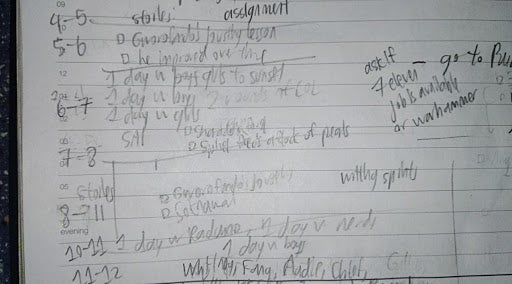
Every day, i write down my plans in a list. This is the kind of notes someone with disordered thoughts makes.
If you meet someone with ADHD, here’s what you can do
People with ADHD are like you and me. They just have a specific type of executive dysfunction.
If you meet someone with ADHD, feel free to ask us about what it feels like to have it. Here are the telltale signs that someone might have ADHD:
- Continually starting new tasks before finishing old ones.
- Inability to focus or prioritise.
- Continually losing or misplacing things.
- Restlessness and edginess.
- Difficulty keeping quiet, and speaking out of turn.
However, most of the time, you won’t even realise that the person you meet has ADHD. That’s because they have medication to keep it in check, or have learnt cognitive behavioural mechanisms to manage it.
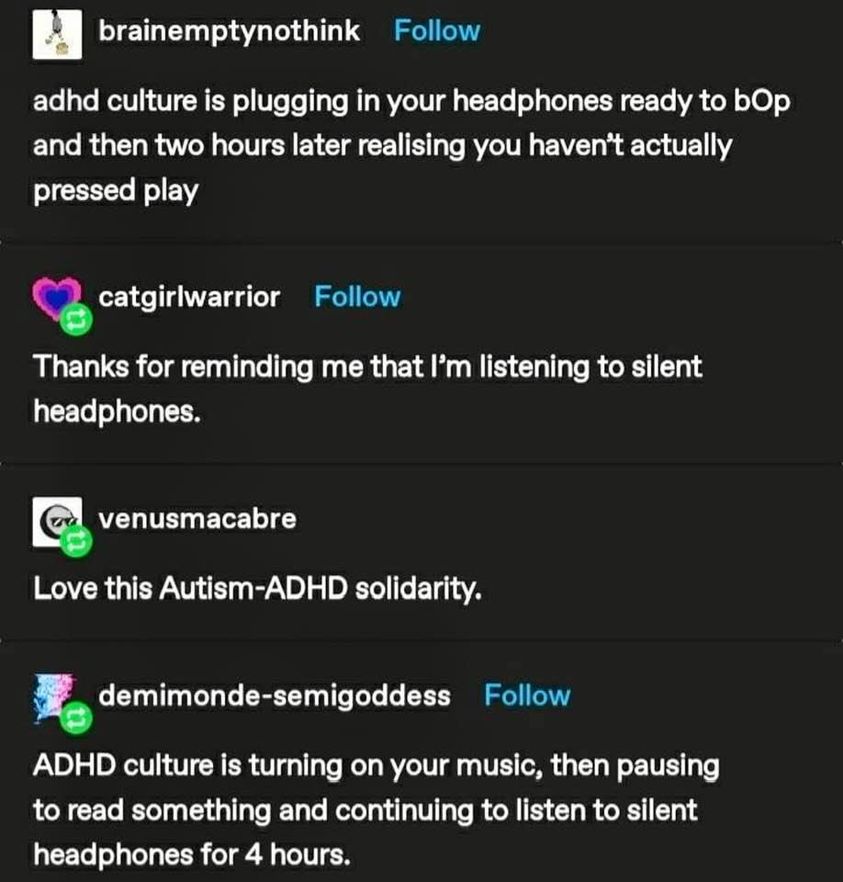
People with ADHD have talents like everyone else. You just need to help them unlock those gifts.
The best thing you can do as their friend is to encourage them to develop their hobbies. With your support, they can make outstanding masterpieces.
When they struggle with their emotions, their fears, or their focus, keep on supporting them emotionally.
As they go together with you through the difficulties of life, be there to guide them through its storms. Be patient with them, so that they can learn to overcome their frustrations.
Discrimination ADHD individuals face in the workplace
Due to the lack of understanding about ADHD, there’s a lot of discrimination that happens in the workplace.
If you know someone with ADHD, why not suggest to your boss to be more inclusive for workers having ADHD? It will definitely benefit the company.
As an employer, you can assign ADHD workers to quiet places, give them tasks that they’re good at, and allow their schedule to be more flexible — for example, working from home.
Especially when workloads become more hectic, this will help them think out of the box, and stay motivated to complete their current task.
To improve an ADHD friend’s life is a great accomplishment by itself. Do not give up on them.
Who knows? One day, they will thank you for making them more successful than anyone would even dream.
For more stories like this, read: What Life’s Like Being Non-Religious. To get new stories from IRL, follow us on Facebook & Instagram.
This writer’s experience with ADHD is their own and does not constitute medical advice. If you suspect you may have ADHD please consult a professional who can give you a diagnosis.
You might also like
More from Real People
‘A RM100 fee cost a company 5 years of revenue’ shares M’sian
This story is about a Malaysian who learned that bureaucracy can be defeated simply by not arguing with it.A billing …
‘I quiet-quit, upskilled, and tripled my salary,’ shares M’sian engineer
This story is about a Malaysian who learned that loyalty without leverage leads nowhere in the corporate world.After years of …
‘I did everything right, and it still wasn’t enough’ shares M’sian graduate
This story is about a Malaysian graduate navigating big dreams in a job market where a degree no longer guarantees …







